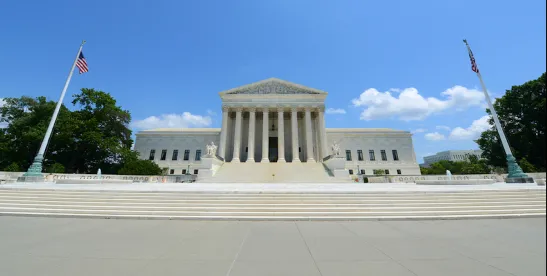Last week, the United States Supreme Court issued an important decision for employers facing unfair labor practice charges. Federal law allows the National Labor Relations Board (NLRB) to charge an employer with an unfair labor practice and immediately seek injunctive relief from federal courts to prevent that practice. If granted, the court can compel the employer to do something (e.g., rehire a discharged employee) or prohibit the employer from taking certain actions (e.g. not enforce a confidentiality policy or refrain from disciplinary action). These proceedings and the requested injunctions—commonly called “10(j) injunctions” after the provision of federal law that authorizes them—can impose significant burdens and costs on employers.
For nearly all litigants, injunctions are an “extraordinary remedy” that courts often hesitate to grant. For example, many employers know the headache and stress of seeking a preliminary injunction to protect its trade secrets from a disgruntled former employee who has jumped ship to a competitor. But historically, many courts applied a deferential standard to 10(j) requests, granting them if there was “reasonable cause” to believe that an unfair labor practice had occurred and if injunctive relief was “just and proper.” In practice, this standard allowed the NLRB to obtain the otherwise-extraordinary remedy of a preliminary injunction as long as the charge was not frivolous and the injunction would preserve the status quo pending the NLRB’s final decision. This low standard sometimes produced absurd results. For example, an employer could be required to rehire an employee it terminated during an organizing campaign for an unrelated violation of company policy, based solely on the NLRB’s untested beliefs about what happened and the desire to maintain the status quo.
On June 13, 2024, the Supreme Court rejected this low bar and held that the NLRB must satisfy the same standard for preliminary injunctions as other litigants. Starbucks v. McKinney, — S. Ct. –, 2024 WL 2964141 (June 13, 2024). This means that, going forward, if the NLRB seeks a 10(j) injunction, it will have to “make a clear showing” that (1) it is likely to succeed on the merits of the underlying charged; (2) that it is likely to suffer irreparable harm without an immediate injunction; (3) that the balance of equities tip in its favor; and (4) that an immediate injunction is in the public interest. Put simply, a 10(j) injunction is now as extraordinary of a remedy as other preliminary injunctions.
Key Takeaways
Although time will tell Starbucks‘s full consequences, it represents a fundamental shift for 10(j) proceedings in the jurisdictions that applied the now-discarded, lower standard (including Michigan). This could have three important effects. First, the new higher standard may discourage the NLRB from seeking 10(j) injunctions in some cases. Because the new standard requires the Board to show a likelihood of success on the merits, it will need to present the judge with the evidence it plans to present against the employer in the administrative proceeding for evaluation. This creates significant risk for the Board: although the judge’s decision on the likelihood-of-success factor would not be binding during agency proceedings, an adverse decision at that early stage of the case could raise serious concerns with both the Administrative Law Judge (ALJ) who ultimately decides the merits of the charge and the appellate judges who decide any resulting petition for judicial review if the ALJ decides to disregard the court’s earlier analysis. Accordingly, the NLRB may decide to forgo seeking 10(j) relief in all but the most unusual cases so that its ALJs can take the first look at the charge’s merits.
Second, in those cases where the NLRB decides to seek a 10(j) injunction, the stakes for employers are significantly higher now. The federal courts’ newfound power to examine a charge’s merits means that a judicial decision on a 10(j) injunction will often opine on who is likely to succeed on the charge: the NLRB or the employer. Defeating a 10(j) motion is therefore an opportunity for an employer facing a ULP charge to gain significant momentum, which may ultimately result in a favorable resolution of the proceeding itself.
Third, 10(j) proceedings now provide employers with valuable procedural tools that they otherwise lack in administrative proceedings: discovery and a preview of the NLRB’s case. Hearings on preliminary injunctions can often look like a “mini trial,” with opening statements, witnesses, documentary evidence, and closing arguments. This could give employers important insight in to the NLRB’s case, which can be used to reach a favorable resolution.





 />i
/>i

